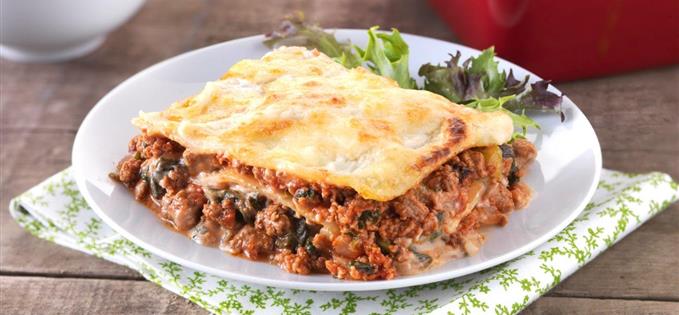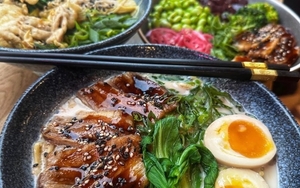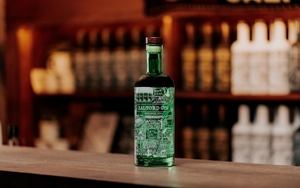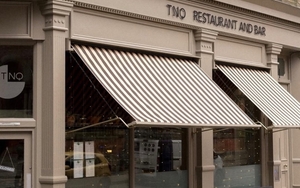AS YOU wander the aisles of the supermarket trying to decide what to buy for your healthy menu, you may have spotted products made from Quorn lurking in the 'healthy eating' section or labelled as 'low fat'. It's a common ingredient in vegetarian ready meals and vegetarian food is meant to be healthy food, right? So is it an ingredient we should all be adding to our diets?
Do they have something to hide?
What is Quorn?
Quorn, originally described as mushroom protein is now more accurately labelled as 'mycoprotein' and is derived from a fungus or mould called ' Fusarium venenatum'. It was originally developed in response to fears of a world protein shortage in the 1960s, partly fuelled by the failure to realise that most varied diets provide plenty of protein. It is widely available in supermarkets, usually as meat substitutes such as vegetarian mince or chicken alternatives or as an ingredient in ready meals.
How is it made?
The official Quorn website is quite coy about the manufacturing process, stating only that "Quorn is produced by a process of fermentation similar to that used in the production of yoghurt or yeast in bread" but further research suggests that, at least originally, the fungus was nourished using the waste products from cereal manufacture and that, as it is naturally low in nutrients other than protein, it has additional vitamins and minerals added.
 Quorn lasagne
Quorn lasagneIs it healthy?
Well it's vegetarian, although not vegan, as it does contain some egg protein but just being vegetarian doesn't necessarily make it healthier - after all, chips are vegetarian but not really what you would describe as a healthy choice. The Quorn website is at pains to emphasise that it is 'low-fat' but, another comparison here, candy-floss is low fat...
Curiously, the official website gives no further information about the product's nutrient content, which seems strange if it really is such a healthy choice.
Here's a comparison between the nutrient content of Quorn, lean beef mince and lentils (which I use to make a vegetarian bolognese).
Per 100g
|
|
Quorn |
Lean beef mince |
Green & brown lentils |
|
Protein |
14.1g |
24.7g |
8.8g |
|
Fat |
3.2g |
8.7g |
0.7g |
|
Carbohydrate |
1.9g |
0g |
16.9g |
|
Iron |
0.6mg |
2.3mg |
3.5mg |
|
Sodium |
348mg |
75mg |
3mg |
|
Folic acid |
21mcg |
20mcg |
30mcg |
Data from McCance & Widdowson's The Composition of Foods, 6th Edition.
So, yes, Quorn has a lower fat content than lean beef mince but not as low as the lentils; it's lower in iron than both of the other foods and it has the highest sodium content. In fact the lentils stack up pretty well nutritionally, they are lower in protein, yes, but are the best choice for all the other nutrients listed here and would be my choice as a meat substitute. I'm also concerned about the additives that are used in Quorn products to provide flavour - how do you make a chicken substitute taste like chicken?
Allergies
Although Quorn had a fairly straightforward introduction into the UK market, it has had a less easy time in the USA. This has been partly due to its initial labelling as 'mushroom protein' , which was viewed as misleading but also because of the persistent reports of allergic reactions associated with eating Quorn.
A 2003 article in the journal Allergy states that the UK producers of Quorn receive around 100 reports of adverse reactions per year and a US lobby group called "The Center for Science in the Public Interest" say that they have logged 1500 reports of adverse reactions to eating Quorn.
The bottom line?
In my opinion, Quorn is a heavily processed protein source with little else to recommend it nutritionally as far as I can see. The fact that the company provides limited information about ingredients and nutrient content on their website makes me wonder whether they have something to hide. Personally, I dislike meat substitutes that pretend to be meat: if I am going to eat vegetarian food, then I prefer it to look like vegetables!
The advice given here is not intended to replace medical advice. Always consult your GP if you are concerned about your health.
Clare Jones, BA(Hons), Dip ION, mBANT NTC & CNHC registered
Nutritional Therapy 07985 166606.
If you would like to make an appointment for a personal nutrition consultation with Clare, please contact her on the above number or visit Clare’s website: www.clarejones-nutrition.co.uk
Follow Clare on Twitter @ClareJonesNutri and Facebook www.facebook.com/ClareJonesNutritionalTherapy













